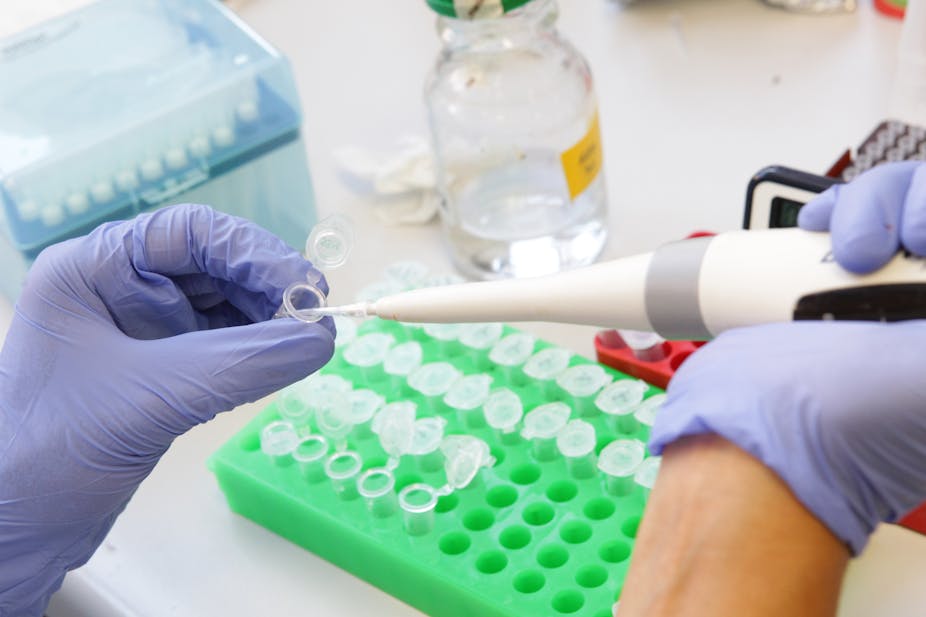Australia must boost its research and development investment to at least the level of other OECD and Asian competitors, the chief of the Australian Academy of Science said today, warning that inaction on research funding could have drastic consequences.
In a speech to the National Press Club, Academy President Suzanne Cory said she would like to see a Minister for Science included as a senior member of every government cabinet and called for an immediate boost to research and development spending.
“Are we investing enough to safeguard our future? Frankly, no,” said Professor Cory, who is also a top medical biologist.
“[If I were Minister], I’d ensure that Australian research and development expenditure rises over the next five years, from the current level of 2.2% of GDP, to 3% – with incentives to attract about half of the increase from industry, state governments, philanthropy and international investors.”
Professor Cory decried the Government’s decision to fund the Gonski school reforms through cuts to research funding.
“The Academy applauds the intent to spend significantly more on school education – and I urge the state and federal governments to come to an agreement. But I am truly dismayed that it is to be directly funded through a mammoth $3.8 billion in cuts and deferrals to research and higher education over the next four years,” she said.
“The aspiration to have 10 universities in the world’s top 100 seems – at best – unlikely in light of these cuts.”
A piecemeal approach to funding makes it hard for researchers to plan and work on long term projects that tackle crucial science questions like climate change, cancer and energy supply.
“Every year researchers and their employers have to go cap in hand to convince the government of the day to maintain funding for the Australian Research Council, the National Health and Medical Research Council, and the other agencies,” she said.
Similar problems abound in research infrastructure, she said, citing the example of Melbourne’s $200 million synchrotron, which accelerates electrons almost to the speed of light, and is used by researchers of microbiology, agriculture, nanomaterials and forensics.
“But since it opened in 2007, there has been a constant scramble to claw enough funds for its operation. And only the original nine beam lines have been built, despite a total potential capacity of 38 beam lines,” said Professor Cory.
“I’d like to quote a second Australian Nobel laureate, Professor Brian Schmidt, who puts the situation thus: ‘It’s as if Australia bought a $200 million car and drives it only around the block, because it’s too expensive to put it on the road’.”
Professor Cory said she was “very troubled by the long-term consequences of recent cuts to research funding and the looming potential that other critical programs may not be renewed or replaced.”
The Academy welcomed commitments by the Opposition to protect current levels of funding for the National Health and Medical Research council over the forward estimates and called on the government to match their vow.
“But we also call on both parties to do more, not only in health and medical research but across the entire research spectrum. To plan for a staged increase in research investment. Inaction will have drastic consequences,” she said.
Bright young researchers and future Nobel laureates will be driven overseas if Australia does not invest enough in science.
“They’ll go elsewhere - to nations where, despite far more difficult economic circumstances, leaders recognise that investment in science is fundamental to their ongoing prosperity and wellbeing,” she said.
Professor Cory said Australia should fund research and development through successive five and 10-year plans, build science literacy by better funding maths and science education at school, and “establish a new program to enable strategic global engagement: at least $25 million a year to facilitate international science collaboration between researchers, innovators and industrial teams.”
“To the question of how we can afford to increase investment when the Budget is in deficit, I respond: How can we afford not to? Tougher economic times demand well-informed choices and leadership. Leadership that provides a vision and a plan for the future.”
Despite the problems, Australian scientists are heavy-hitters by international standards, she said.
“We Australians represent just one-third of 1% of the world’s population, but our scientists produce more than 3% of the world’s published scientific articles, conference papers and reviews. In fact, last year we ranked 11th in the world, with more than 59,000 publications.”
The full text of Professor Cory’s speech can be found here.

